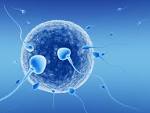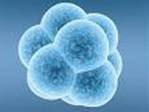
|
|
||||
| Home | About Us | Testimonials | Contact Us | Our Services |
|
|
||||
Assisted Conception & IVF
Assisted reproduction is the name given to treatments that can help you get pregnant without you having sexual intercourse. There are a variety of treatments, and what is suitable for you will depend on your own circumstances. The options include:
Intrauterine insemination (IUI)IUI, also known as artificial insemination, involves inserting sperm into the womb via a fine plastic tube passed through the cervix. Sperm is first collected and washed in a fluid. The best-quality specimens – the fastest moving – are selected. In vitro fertilisation (IVF)In IVF, the egg is fertilised outside the body. The woman takes fertility medication to encourage her ovaries to produce more eggs than normal. Eggs are removed from her ovaries and fertilised with sperm in a laboratory. A fertilised egg called an embryo is then returned to the woman's womb to grow and develop. Egg and sperm donationIf you or your partner has an infertility problem, you may be able to receive eggs or sperm from a donor to help you conceive. Treatment with donor eggs is usually carried out using IVF. Anyone who registered to donate eggs or sperm after April 1 2005 can no longer remain anonymous and has to provide information about their identity. This is because a child born as a result of donated eggs or sperm is legally entitled to find out the identity of the donor when they become an adult (at age 18). Mr Swanton will discuss in more detail various options for assisted conception depending on your situation and needs IVF patient
information leaflet For further information:
|
| Privacy Policy | Disclaimer |
| © Copyright Berkshire Gynaecology Ltd 2025. All Rights Reserved. | Site by Visual Productions Ltd |

